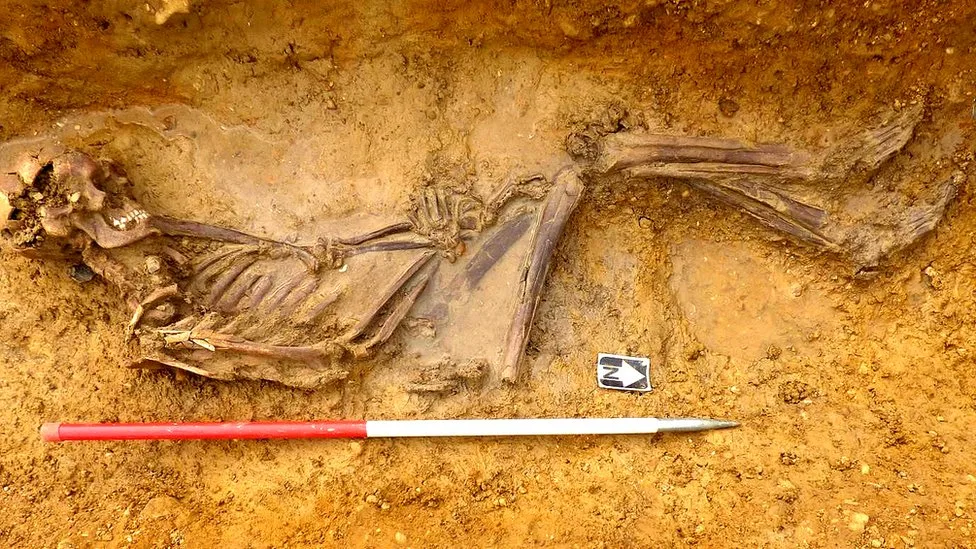20/12/2023
20/12/2023

LONDON, Dec 20: A remarkable discovery in Cambridgeshire has unveiled the story of a young man born 2,000 years ago in southern Russia, shedding light on a significant chapter in the history of Roman Britain. DNA analysis has confirmed that the well-preserved skeleton, found during A14 road excavations, belongs to a Sarmatian, a member of a nomadic group from the furthest reaches of the Roman Empire.
Named Offord Cluny 203645 after the Cambridgeshire village and specimen number, he was buried alone in a ditch with no personal possessions, making it challenging to establish his identity. Dr. Marina Silva from the Ancient Genomics Laboratory at the Francis Crick Institute in London extracted and decoded Offord's ancient DNA from a tiny bone in his inner ear.
Despite the fragmented and damaged nature of the DNA, researchers determined that Offord was genetically distinct from other Romano-British individuals. The latest ancient DNA analysis methods are providing insights into the untold stories of ordinary people, moving beyond narratives focused on the wealthy and powerful.
Offord's DNA revealed his Sarmatian origin, and researchers sought to understand how he ended up in Cambridgeshire during the Roman occupation. Analysis of his fossilized teeth, which recorded changes in his diet over time, indicated that until the age of six, he consumed millets and sorghum grains prevalent in the Sarmatian region. As he grew, there was a shift to a diet rich in wheat found in western Europe, suggesting migration.
Historical records suggest Offord could have been the son or slave of a Sarmatian cavalryman, and DNA evidence aligns with this narrative. Dr. Alex Smith of MOLA Headland Infrastructure, leading the excavation, emphasized that this biological evidence marks a crucial advancement in understanding Roman-era societies, indicating more significant movement, not just in cities but also in the countryside. Dr. Pontus Skoglund, head of the ancient genomics laboratory at the Crick, highlighted how advanced DNA techniques are transforming our comprehension of the Roman and later periods.


